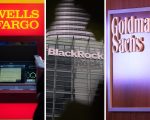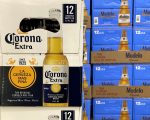
Brandywine Global portfolio managers John McClain and Bill Zox pride themselves on being different. Their Corporate Credit Fund, which trades under the ticker BCAAX for retail investors, largely focuses on high-yield bonds. Yet the pair have a unique playbook that seeks to exploit what they see as structural inefficiencies in the market. The result is that the bulk of the fund’s holdings aren’t found in the top 100 issues of the ICE BofA U.S. High Yield Index benchmark, according to Morningstar. “To actually generate alpha, you have to stand out by not fitting in,” McClain said. They also don’t chase yield. BCAAX has a 30-day SEC yield of 6.38%, while its institutional shares via ticker BGISX have a 7.01% 30-day SEC yield. That’s a lesson McClain learned when he started in the business during the 2008 global financial crisis and saw people reaching for yield and bearing too much risk. “We’re adaptable. We’re flexible. We move around within the marketplace and we don’t bear undue risk, which has really been the key to our success in terms of growing assets,” he said. The fund currently holds a little over 70% in high-yield bonds, 10% in cash and about 18% in investment-grade bonds. The tactic has paid off. The fund is one of the best performers over the last one-, three- and five-year time frames, according to Morningstar , which has a five-star rating on the fund. BCAAX has a one-year trailing total return of 10.21%, while its three-year trailing total return is 2.38% and five-year trailing total return is 5.33%. It also has an adjusted expense ratio of 0.88%. Focused on being best, not biggest Zox started the fund in 2002 while at Diamond Hill, and McClain joined him in 2014. Brandywine Global, which is part of Franklin Templeton, bought the fund in 2021. McClain said they are a “small part of a small part of a very large organization,” which gives them access to resources but the ability to operate like a smaller entity. The office is located in a former dairy manufacturing facility in Columbus, Ohio, that was converted into a food hall, complete with a beer garden and overlooking an alley with trash cans. McClain and Zox believe they have a competitive edge because they often invest in areas of the market often disregarded by their larger counterparts. “We’re focused on being the best, not the biggest,” McClain said. “What it does is it allows us to compete with less competition in a more inefficient part of the marketplace, because the big managers realize that the small bonds don’t move the needle for them.” For example, the fund owns Puerto Rican bank Popular bonds. “If you talk to a financial analyst at most firms, they’re focused on JPMorgan , Wells Fargo , Citi , not Banco Popular and what’s going on with the Puerto Rican economy,” McClain said. Another inefficiency the managers exploit is the area between low investment-grade bonds and the higher-rated high-yield market, Zox said. That’s why they have 18% in investment-grade bonds. Investment-grade portfolio managers are shying away from the lower rated end of the investment-grade market, and high-yield managers are sticking with the higher rated end of the high-yield market, he explained. “We find better values in the lower rated part of the investment-grade market than the higher rated part of the high-yield market,” Zox said. Another strategy they look at is what could perform well in a down market. For instance, subprime auto lender Credit Acceptance is one name in the fund. “Their competition is pulling back, and therefore they have stronger pricing power,” Zox said. “It’s a little bit counterintuitive — the low end consumer is struggling, but they’re able to price more efficiently here, relative to where they’ve historically done. And so they generate very strong earnings power on a go forward basis,” he added. Then there are bonds that may not be attractive from an ESG perspective but have strong business fundamentals. Two names in the portfolio that fit that bill — Vector Group and Turning Point Brands , McClain said. Vector Group sells discount cigarettes, while Turning Point’s products include cigars, rolling papers, moist snuff tobacco and loose leaf chewing tobacco. “Cigarettes are very sticky in any type of economy and discount trade down is certainly very strong as well,” he said. Treating it like their own money Zox and McClain also have a vested interest in the fund doing well. Zox has more than $1 million of his own money invested in the fund, while McClain has between $100,000 and $500,000, according to Morningstar. Most fixed-income managers own up to $10,000, Zox said. “We’re doing what makes sense. We’re treating it like it’s our own money, because it is,” Zox said. The managers are also not very concerned if the economy turns and there isn’t a soft landing, like many are predicting. In fact, Zox said investors should be prepared for a more difficult economy than is priced into the markets right now. “High yield will do fine in that environment, because the credit quality is much higher than it’s been and the management teams of these high-yield borrowers have now had a year and a half plus to prepare for that kind of an environment,” Zox said.







